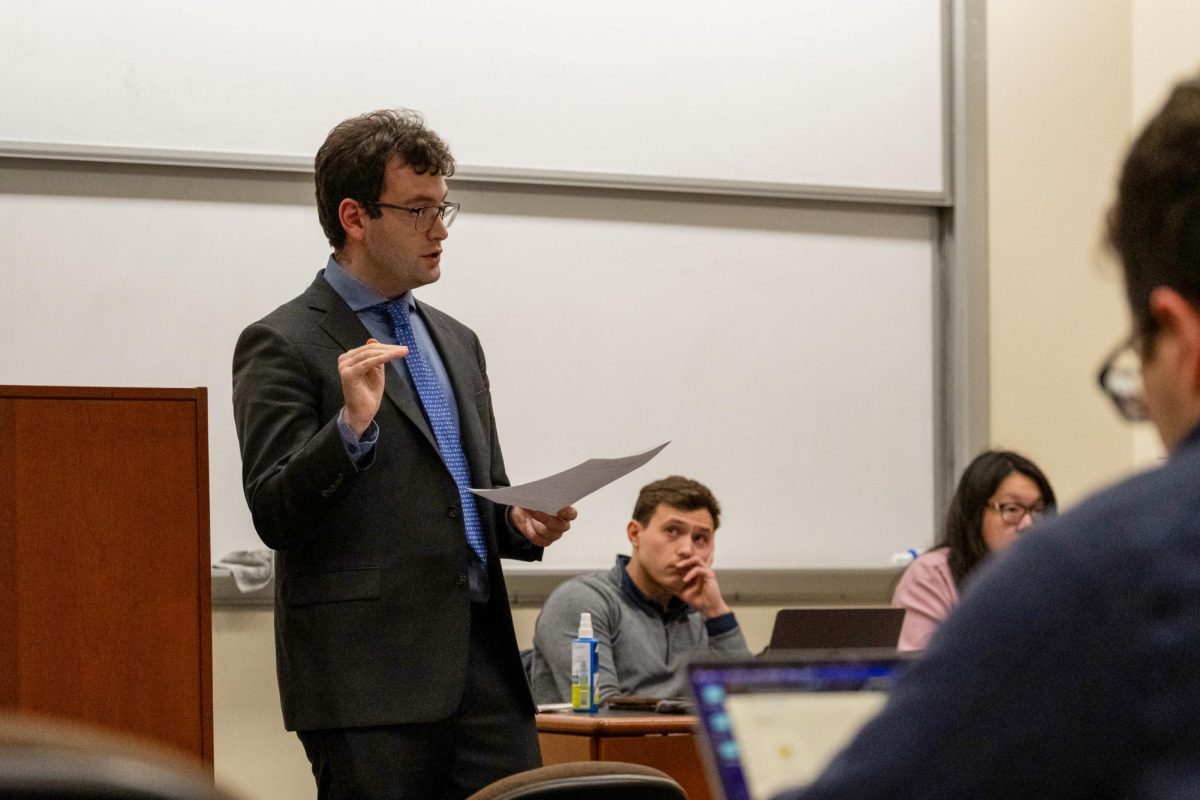Rain clouds cleared as nearly 7,000 graduates took over the National Mall May 15 to collect their degrees, marking the first graduating class to have spent their entire growth at GW with University President Steven Knapp.
“These are the students who started when I started. I was a freshman the same time they were,” Knapp said in an interview before the ceremony. “So I have a special connection with this graduating class.”
New York City Mayor Michael Bloomberg’s keynote speech was sprinkled with references to GW culture, ranging from McFadden’s quips to Manouch mentions.
“I know this is a bittersweet day for all of you who are graduating,” Bloomberg said. “It won’t be easy to leave a place where you can rub a hippo’s nose, break-dance with big George, sit in Einstein’s lap, pet a dog named Ruffles and buy a hot-dog from a guy named Manouch.”
Bloomberg, who was elected mayor two months after 9/11, took a moment to reflect on the legacy of that day, commending the decline of partisanship and the growth of service and volunteering that it inspired.
“The conventional wisdom that Democrats and Republicans hold diametrically opposed beliefs – and that one is right and one is wrong – is just not true,” Bloomberg said. “You can be a Democrat or a Republican – I’ve been both.”
Bloomberg, who received an honorary doctor of public service from the University, said volunteering has become an even bigger part of our culture after 9/11, especially at GW.
He noted how students “not only met, but far exceeded” First Lady Michelle Obama’s service challenge of 100,000 hours last year, adding that he believed the feat deserved “a round of applause.”
In addition to hearing “some of the most important and influential leaders of our time” and experiencing “unprecedented access to the power center of government,” the mayor commended graduates on their uniquely-GW experience.
“And I bet you’ve learned a few other things too, like what the meals to avoid are at J Street,” Bloomberg said.
After six years at GW earning his undergraduate and graduate degrees, student speaker Collin Stevenson said he “realized that seemingly extraordinary experiences are not the exception here.”
“While we are sometimes told that we may not be able to change the larger world, know that you have absolutely changed the lives of all those people you include in your own world,” he said. “But equipped with your passion and armed with your education, I have no doubt that you will absolutely change a world for someone, for some family, for some community, for some city, for some nation.”
Stevenson, a 2nd Lieutenant in the Air Force, will begin intelligence training in Texas this summer.
Honorary degree recipient Peggy Cooper Cafritz, an alumna of the Law School, reflected on her efforts to desegregate GW’s campus.
“I came to GW from Mobile, Ala., as a very angry young black woman,” Cafritz said.
During her time at GW, the arts and education advocate helped found the Black Student Union and organized a picket line in protest of segregated sororities.
“I left GW as a woman who had transformed from black to African-American, and I was not angry anymore,” she said.
Civil rights leader William Coleman, who served as an adviser or consultant to eight U.S. presidents, received an honorary doctor of laws.
“I wish I had gone to GW,” he said, looking out onto the crowd of 25,000.
Students interviewed afterwards said they enjoyed Bloomberg’s GW references, noting a feeling of nostalgia now that they’re leaving the University.
“I think a lot of people appreciated the Manouch comment. We were all laughing and asking where he got all his information for all that,” Eloise Smith, an undergraduate in the Columbian College of Arts and Sciences, said.
New York native and grandparent of a graduate, Gloria Ingrao, 82, said she was very excited and proud to watch the ceremony on the National Mall, especially with Bloomberg as speaker.
“We’re New Yorkers, so we thought he was great,” Ingrao of Westchester, N.Y., said.
This article was updated May 17, 2011 to reflect the following:
The Hatchet, based on a prepared transcript, incorrectly reported that Michael Bloomberg referenced Gelman Library in his speech. Bloomberg deviated from the transcript onstage and did not mention Gelman.






